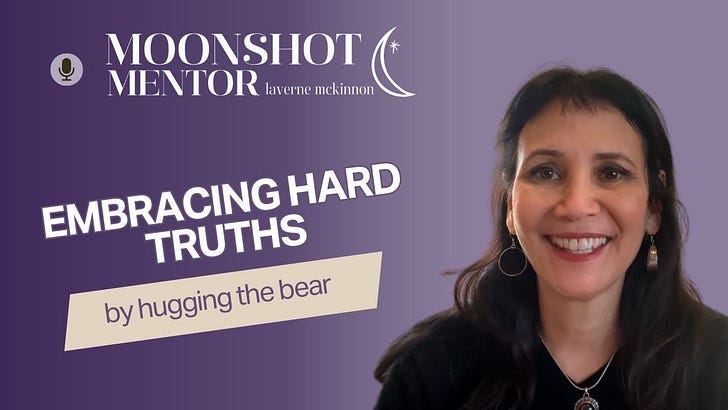In the world of career development, the idea of bee stings can serve as a powerful metaphor for resilience and personal growth. Just as there's a theory that suggests regular bee stings can bolster your tolerance to their painful effects, your professional life can benefit from a similar approach.
(As a disclaimer, I'm not advocating literal bee stings – always consult a medical professional before attempting any unconventional treatments.)
I’m going to call this concept BEE: Building Empowerment through Endurance. Similar to venom therapy, BEE offers valuable insights for building a robust mindset that can help you tolerate and conquer the obstacles that often slow your career progress.

WHAT IS TOLERANCE?
Before we dive in, let's clarify what I mean by "tolerance." Tolerance is all about your ability to deal with, put up with, or accept the opinions and actions of others, even if they drive you up the wall. We know how important tolerance is in career longevity and that's where BEE: Building Empowerment through Endurance comes in. At the same time, we don’t want you to be someone who gives up on their own values and boundaries in order to remain “safe” in a job.
BEE STINGS IN THE WORKPLACE
In the professional realm, a "bee sting" is any kind of verbal or action-based annoyance that makes your work life not awesome. It could be a lack of feedback, office gossip, a public slip-up, or even missing out on a promotion you’ve been working hard for.
A swarm of stings might be getting laid off, down-sized or fired.

WHY DO BEES STING?
Just like a real bee stings when it feels threatened, in your professional life, colleagues, bosses, or even outsiders might "sting" you when they feel threatened, whether it's from your skills, talents, background, opportunities, visibility, or something else entirely.
For example, I once had a boss who threw me under the bus to undermine my relationship with a writer. He was feeling “stung” by the writer sharing confidences with me so “stung” me back by telling this writer and his reps that I was not supportive of his project.
In another situation, a client I’ll call Blake was stung by a colleague who shared with the department head that Blake was struggling with an assignment. Blake had been working extra hours to get it done and had reached out to this colleague for guidance. The colleague had been threatened by Blake receiving this plum assignment and tried to sabotage them with the boss.
HOW COMMON IS A BEE STING?
Bee stings happen all the time.
“Bee stings” happen all the time in the professional realm.
I wish it weren’t so …
WHAT ARE THE SYMPTOMS OF A BEE STING?
When you get stung by a bee, you feel a sharp burn, some swelling, itchiness, and maybe even a bit of skin discoloration.
In the professional realm, it translates to irritation, frustration, confusion, anger, and maybe some sleepless nights.
These unprocessed emotions can mess with your work quality and your relationships with colleagues.
Over time, repeated stings can lead to fatigue, burnout and/or depression.
WHAT ARE THE COMPLICATIONS OF A BEE STING?
While an allergic reaction may be the most severe complication with real bee stings, in the professional realm a “bee sting” can erode trust in colleagues and in one self. Which is why it’s critical to acknowledge the sting and get treatment.
HOW TO TREAT A BEE STING
With a real bee sting, it involves removing the stinger, cleaning the wound, and taking some pain relief.
In the professional realm, you can BEE (Build Empowerment through Endurance) by taking the following three steps:
Say "ouch."
Pro-Tip: Studies have shown that acknowledging the hurt helps to develop tolerance.
Put on a metaphorical band-aid by talking to a trusted friend, journaling, or taking a walk.
Pro-Tip: It’s important to create a boundary for yourself and not talk to a work colleague. This opens the door for gossip and misunderstanding.
Consider if you need "ice" to reduce swelling or pain. “Ice” means having a direct conversation with the person who stung you.
Pro-Tip: Assume grace - perhaps they did not realize what they did had an impact on you.
Pro-Tip: Be direct. For example, you might say, “When you told our department head that I was struggling, you shared information that wasn’t yours to share.”
Pro-Tip: Make a call to action. For example, you might request, “In the future, ask me if this is your information to share.“
HOW DO I PREVENT A BEE STING?
While it’s not possible to completely control the situation in which you might get a bee-sting, there are ways to lessen the odds by being aware of surroundings in which bees might be lurking (near flowers, food, anything that has a fruity or floral scent.) You can also wear protective gear and stay calm. Swatting at bees threatens them.
Hard truth is that every workplace environment has some level of competition and drama. Here are three strategies to lessen the odds of a “bee-sting”:
Know and live your values. Being clear on your intentions, what you bring to the table and doing what you say and saying what you do creates a safety zone.
Create and build community by celebrating all victories (not just your own) and if you have a concern speak directly to that person.
If you’re walking into a hornet’s nest (and it happens no matter how hard you may try to avoid it), wear protective clothing in the form of asking for an agenda, being as prepared as possible, not answering questions you don’t know the answer to by replying, “I’ll have to get back to you.”
WHEN DO YOU NEED TO GO TO THE ER?
If you're experiencing a severe reaction to a bee sting like trouble breathing, swelling of the tongue or throat, or hives, it's time to call in the professionals.
In the workplace, a severe reaction could require reaching out to your boss, human resources, a therapist, or even a lawyer in extreme cases.
HOW TO BUILD TOLERANCE TO PROFESSIONAL BEE STINGS
You don't need to go out and purposefully get stung to build tolerance for future stings. Trust me, if you're working, you're already getting your fair share of stings. So here's the deal:
Embrace the fact that getting stung is an inevitable part of everyone’s career journey.
Recognize that there’s nothing wrong with you. You’re getting stung because your values (what’s important to you) are getting stepped on.
Learn to advocate for yourself by having difficult conversations.
Be willing to make a change. In some cases, you may discover that the environment or industry you are working in is simply not aligned with your values and you must leave before it becomes toxic.
THE BOTTOM LINE
In this journey through the world of professional resilience, we've learned that much like a beekeeper, you can develop the strength to handle the stings that come your way. By embracing BEE: Building Empowerment through Endurance and a mindset that acknowledges the inevitability of workplace challenges, you can build the tolerance and resilience needed to navigate your career path successfully. So, as you face the "bee stings" in your professional life, remember this: you're not alone, and each sting is an opportunity to grow if you acknowledge what happened and treat the sting.

JOURNAL PROMPTS
To further your understanding of the concept of BEE: Building Empowerment through Endurance, here are a few questions to journal around.
What’s a professional challenge that felt like a "bee sting." What emotions did it trigger, and how did you initially react? How might embracing the BEE (Building Empowerment through Endurance) concept have changed your response?
How has gossip impacted your work environment, and how could you apply the principles of tolerance and resilience to address these types of situations?
Think about your career values and boundaries. Are there moments when you compromised these values to avoid workplace conflicts or "stings"? How can you maintain your values while also developing tolerance?
Imagine your ideal work environment, where you feel supported, valued, and free from "stings." How might you actively create this environment or seek it out in your career journey?
🙌🏾 Questions? Want to work with me? I offer private coaching sessions as well as in-person and virtual group work. Reach out directly here to set up a complimentary consultation.
If you’re resonating with what you’re reading, please consider subscribing. What’s that mean?
🙌🏾 You’ll receive regular emails (with lots of heart and a bit of humor) that share a tool or insight from my coaching practice.
🙌🏾 Typically the blog and blogcast will have a question at the end to provoke thought that supports you in your growth.
🙌🏾 Updates on offerings, free stuff, recommendations, referrals.
My blog aims to help people achieve their ambitious goals, their moonshot if you will. 😃 Oftentimes, though, we neglect an essential aspect of pursuing our dreams: the inevitable missteps, obstacles, and failures that come our way. Failing to acknowledge and process these losses properly can lead to imposter syndrome, burnout, low self-esteem, confusion, and even result in completely abandoning our dreams. 😟 That's why I strongly advocate for embracing grief awareness (along with other tools like values identification, knowing your why, sharpening executive function, habit forming, and more.) By doing so, we can effectively navigate challenges, regain motivation, and hit our moonshots. ✌🏾️ If you know someone who could benefit, please share this newsletter or recommend me to them. 🙏














Share this post